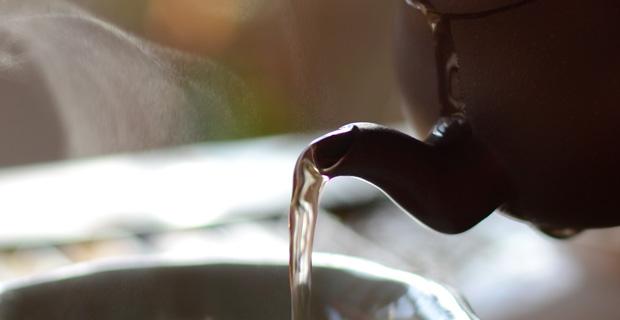The Best Water Temperature to Brew Puerh Tea: First Choose a Category
When you consider what temperature your water should be when you brew Puerh tea, understand that Puerh tea can be separated into three broad categories: young raw (Sheng) Puerh tea, aged raw Puerh tea, and ripe (Shu) Puerh Tea. Different categories of Puerh tea require slightly different temperatures for optimal brewing results.
3 Ways to Separate Puerh Teas
Young Raw Puerh Tea Brewing Temperature For the purposes of selecting water temperature, we will define young raw Puer tea as raw Puerh tea which ranges from fresh to 3 years old. The ideal water temperature for steeping young raw Puerh is around 90°C ( ~195°F). Younger raw Puerh teas behave similar to green teas, especially if they were recently produced. If the water temperature is beyond 90°C, additional bitterness and astringency will be coaxed out of the leaf. The suggested temperature of 90°C can be lowered further to roughly 85°C( 185°F) in order to further reduce astringency or bitterness. For taste testing, and in order to understand the full breadth of a tea’s characteristics, we recommend using water at a full boil for steeping. Water at a full boil paints a more accurate portrait of a tea’s personality, both the flaws and the merits. Aged Raw Puerh Tea Brewing Temperature Older raw Puerh teas require higher temperatures to open up. Imagine the aged raw Puer tea as being in a hibernation state. For teas that have been in slumber for a period of ten years or longer, they respond best to a rinse at 100°C (212°F), or water that is at a rolling boil. For future steeps in the session, we recommend using of water at 95°C (203°F), or water at a full boil. After the leaves have opened up sufficiently, gauge what temperature yields the best tea through experimentation. In our experience, the ideal temperature is rarely below 90°C. Ripe Puer Tea Brewing Temperature Ripe Puerh tea is generally much less sensitive to water temperature than raw Puerh tea. In addition to a lack of sensitivity, the production conditions are often such that a full boiling rinse will aid in cleaning off any excess dirt or dust. We recommend using water at a full rolling boil (100°C or 212°F) for the rinse and all subsequent steeps. There is little need to worry about bitterness and astringency in relation to the water temperature; a full boil will usually yield the best results.

